IN PICS: Residents of Christiania pull up Pusher Street stone by stone
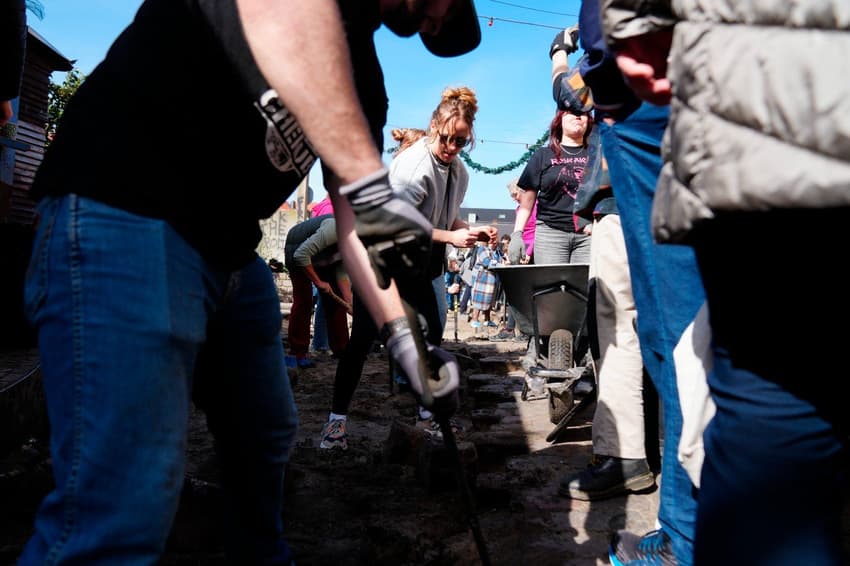
Christianites gathered together on Saturday morning to pull up the hippy enclave's notorious Pusher Street cobble stone by cobble stone, with participants asked to take stones home as souvenirs.
The idea was that by digging up all the cobblestones on Pusher Street, a symbolic end would be brought to the drug trade that has long plagued the street in Christiania, a former army barracks that has since 1971 housed an inner city hippy community.
A Christianite, as residents of the enclave are called, began the excavation of Pusher Street on Saturday morning by removing the first cobblestone, with the crowd erupting into cheers when it was removed at around 10am.
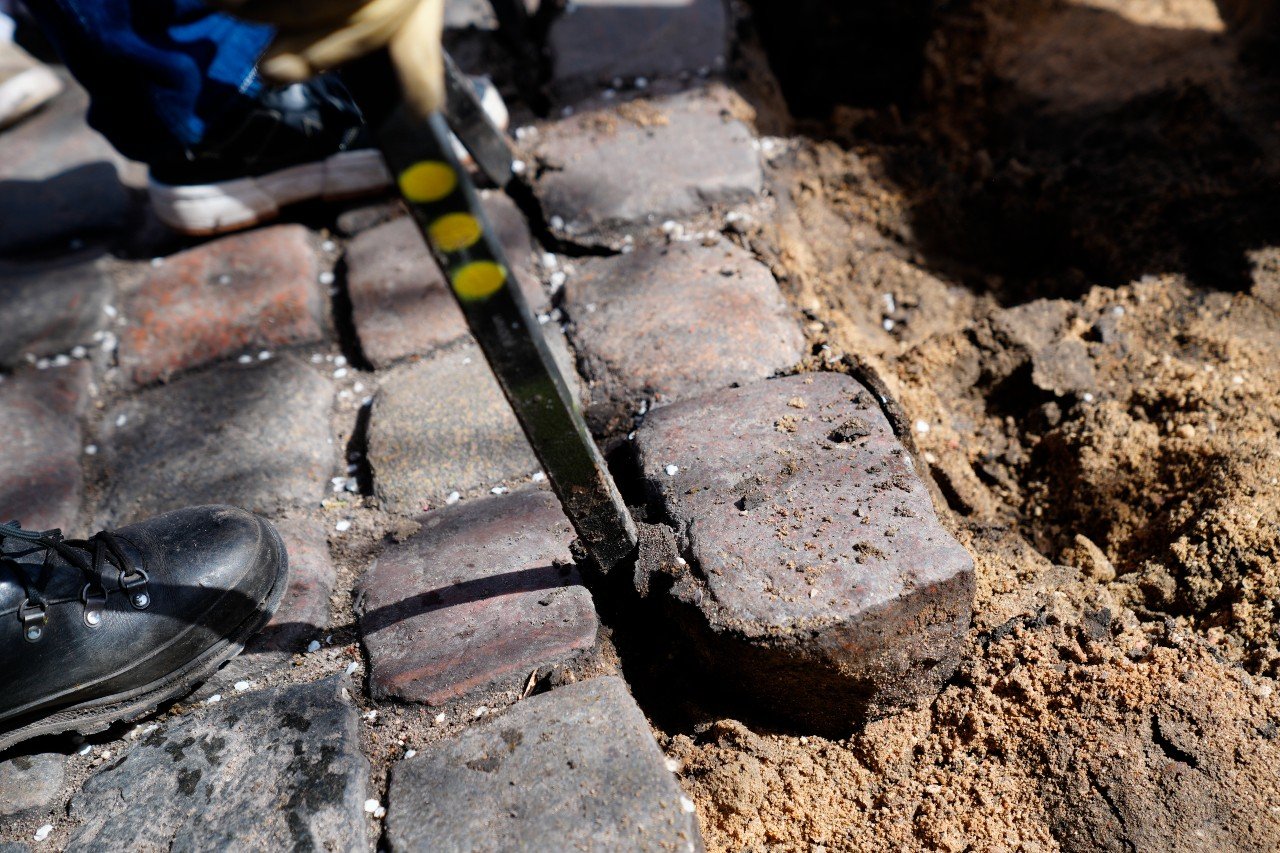
Photo: Ida Marie Odgaard/Ritzau Scanpix
READ ALSO: Why Denmark's hippy Christiania is closing down its open drug market
The stone was picked up by two children and then handed over to Copenhagen mayor Sophie Hæstorp Andersen and Peter Hummelgaard, Denmark's justice minister, who had come to oversee proceedings.
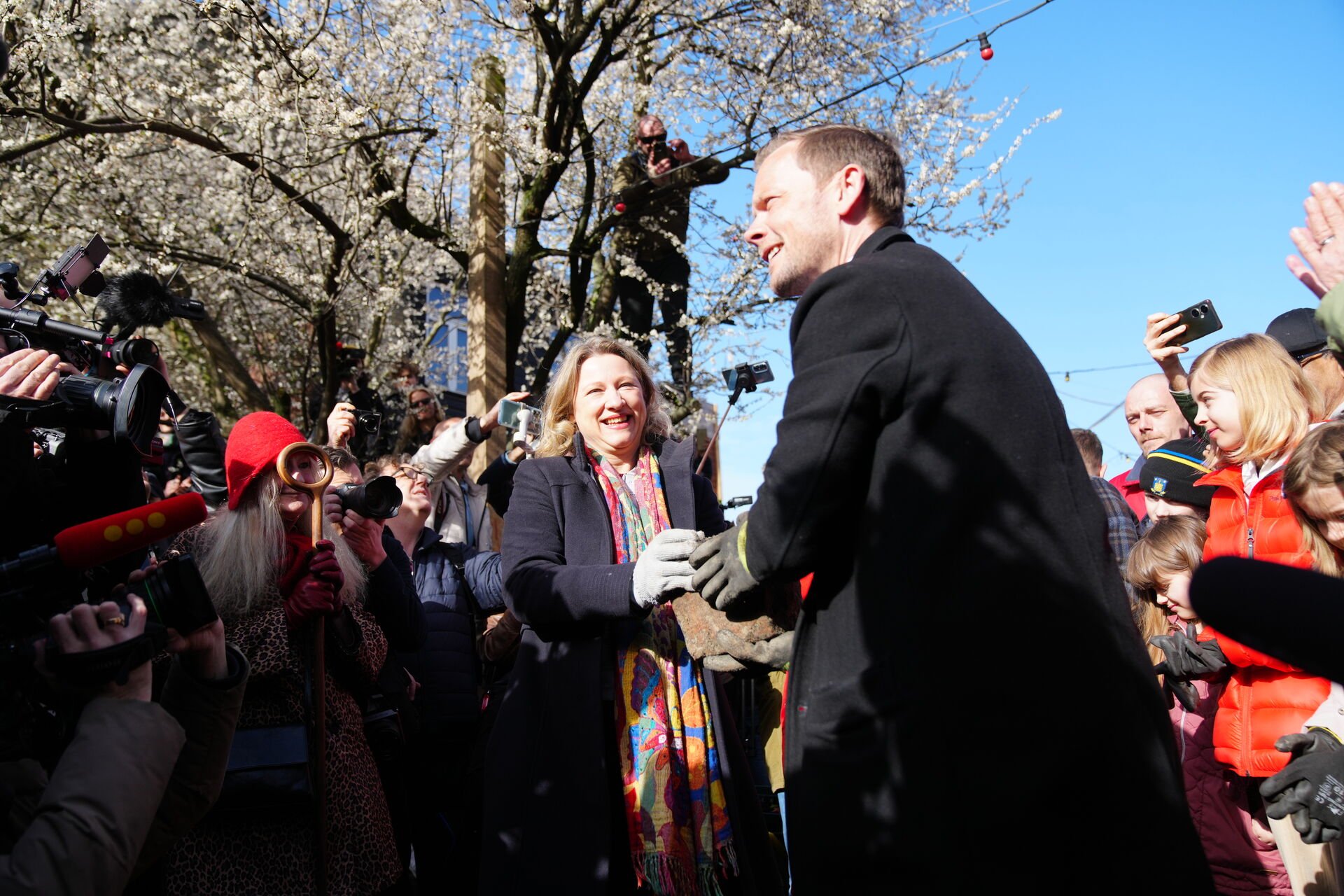
Photo: Ida Marie Odgaard/Ritzau Scanpix
Hummelgaard conceded that it was likely that the criminal gangs who have over the past decade or so taken control of the Pusher Street market would establish other places where they can sell their cannabis.
But he said that closing down Pusher Street would make it easier for police to control illegal drugs.
"The police themselves have assessed that it will be easier to crack down on the crime of buying and selling illegal drugs and the associated crimes if it is not concentrated in areas where it has taken deep roots," Hummelgaard told the Ritzau newswire.
"You have the advantage, if it moves out onto the streets, that citizens will inform the police if they see something happening, for example outside their entrance or by the subway. That has not been the case at Christiania."
The police and the Ministry of Justice have drawn up a plan for what the police must do in the following days, weeks, months and years if the sale moves elsewhere.
Below you can see Hummelgaard (centre right) and Hæstorp Andersen (centre left) drinking coffee with residents before starting the day's activities.
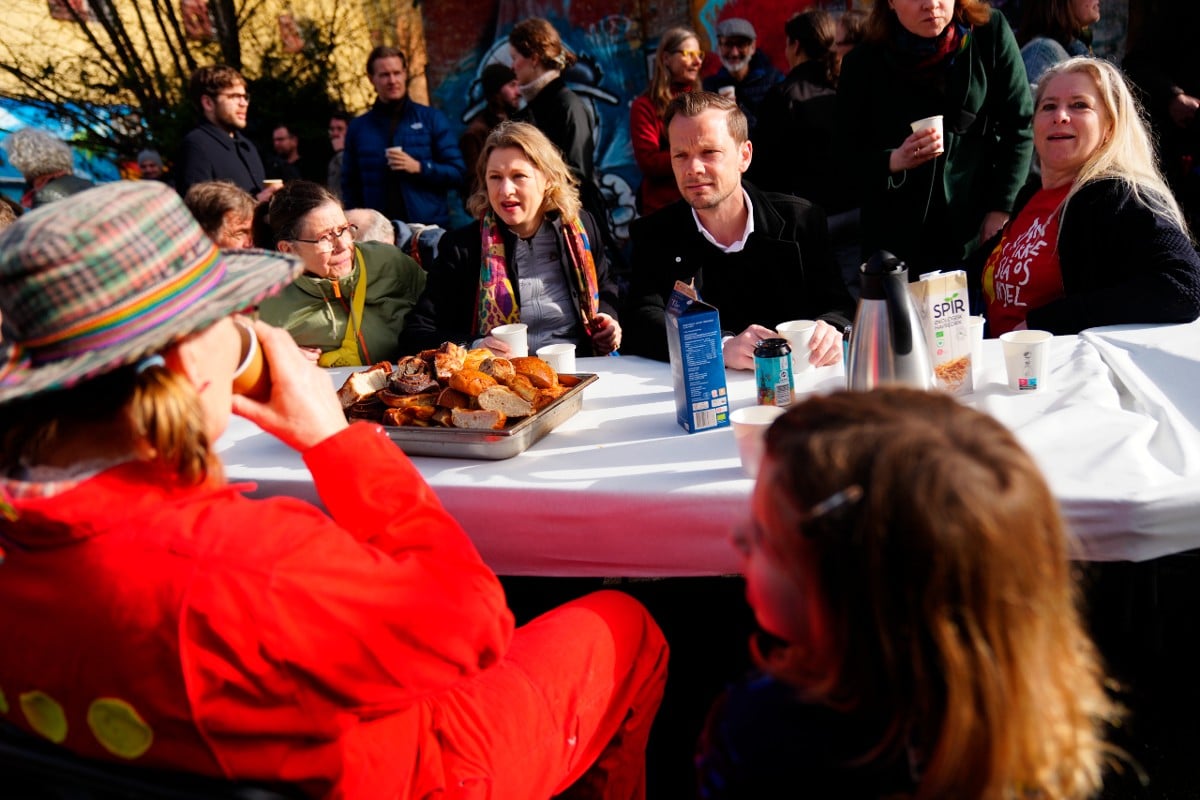
Photo: Ida Marie Odgaard/Ritzau Scanpix
Once the first cobblestone had been pulled up, dozens of residents began to work together with wheelbarrows and digging implements to pull up the entire street.
Peter Hersom, a former resident of Christiania, had come from his home in Roskilde to witness the historic day and to bring home a piece of history.
"It was very important for me," he said. "There will be a day when it will be fun to say you were here."

Hersom had collected a cobblestone, which he aimed to take home as a souvenir.
"It will probably be a place that will be remembered later."
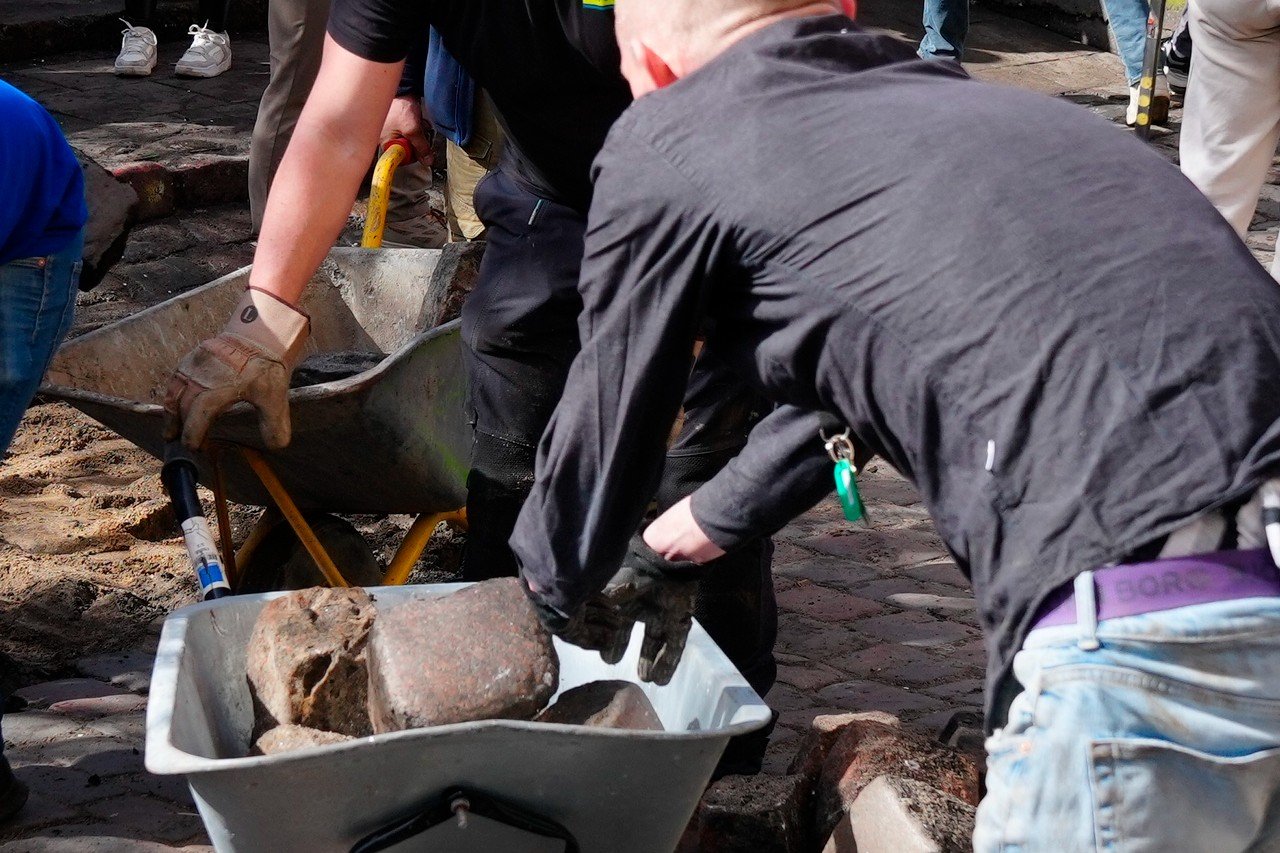
Photo: Ida Marie Odgaard/Ritzau Scanpix
He had originally planned to take a large pile of stones home with him, he said, so he could pass them on to friends and acquaintances, but realised during the morning that the stones were a too heavy for him to take back more than one or two.
A group of cheerleaders added a bit of colour, marching over the half-dismantled street.
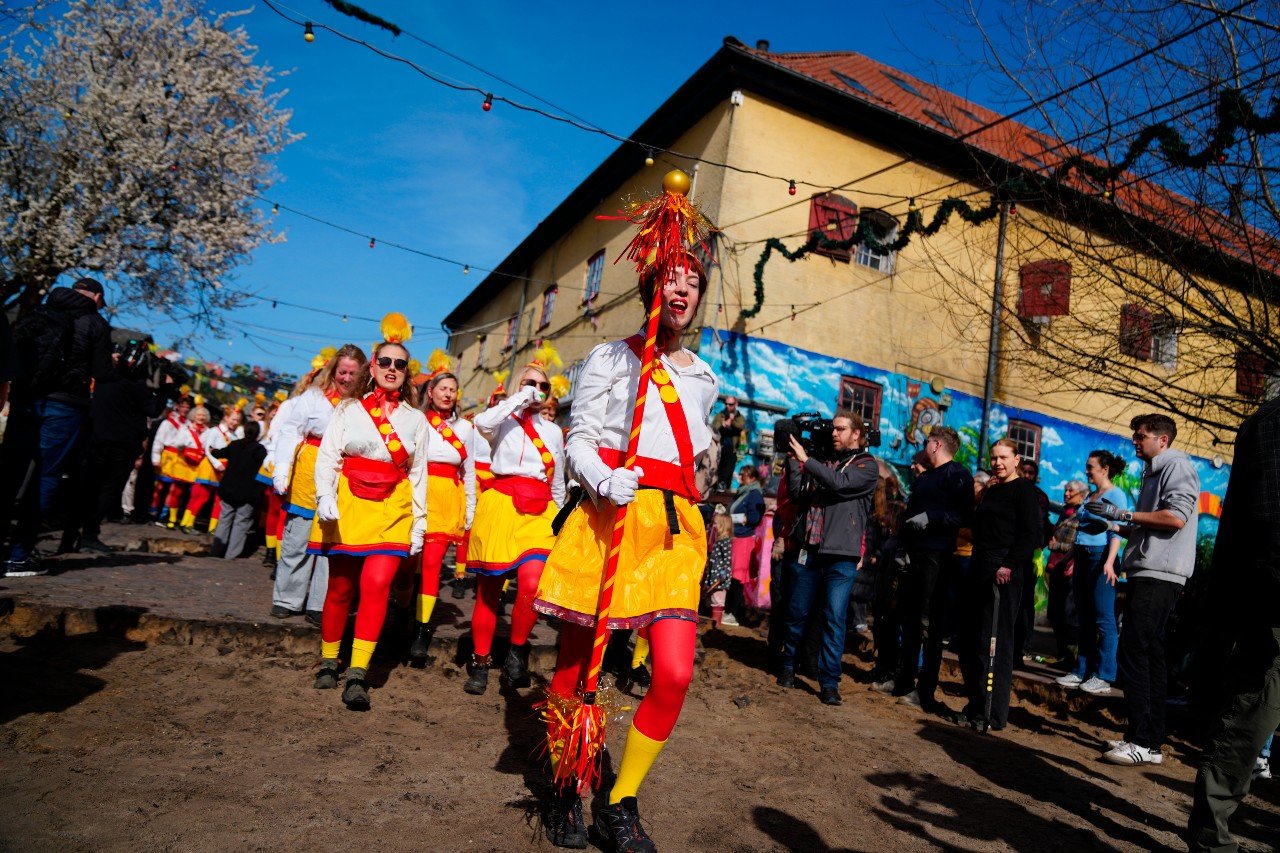
Photo: Ida Marie Odgaard/Ritzau Scanpix
Another person who turned up on Saturday to take the cobble home was Mark, whose brother Lucas had lost his life at the age of 23 when he was shot on Pusher Street.
"Those were the stones my brother breathed his last breath on. It is the last memory we have of him being alive," he told the Ekstra Bladet newspaper.
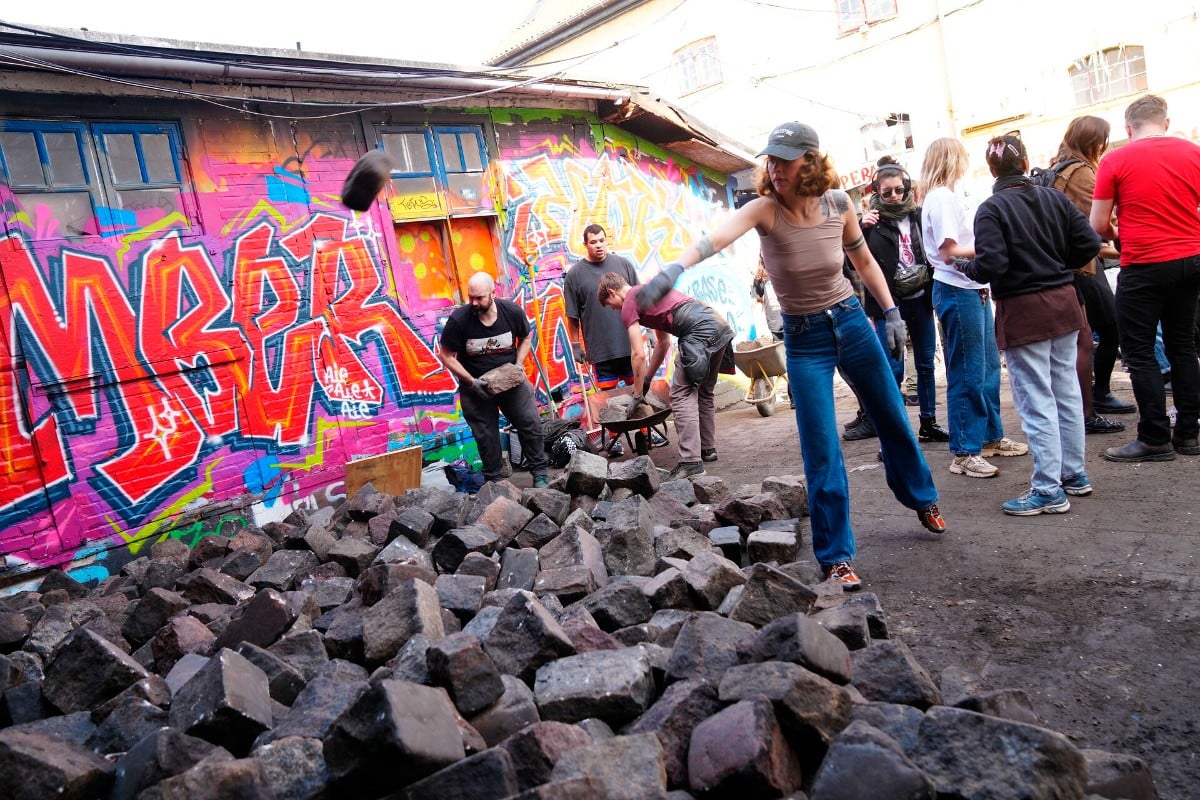
Photo: Ida Marie Odgaard/Ritzau Scanpix
At the end of the day, a large pile of stones had been collected in one of Christiania's collectively owned buildings.
 Photo: Ida Marie Odgaard/Ritzau Scanpix
Photo: Ida Marie Odgaard/Ritzau Scanpix
Comments
See Also
The idea was that by digging up all the cobblestones on Pusher Street, a symbolic end would be brought to the drug trade that has long plagued the street in Christiania, a former army barracks that has since 1971 housed an inner city hippy community.
A Christianite, as residents of the enclave are called, began the excavation of Pusher Street on Saturday morning by removing the first cobblestone, with the crowd erupting into cheers when it was removed at around 10am.

READ ALSO: Why Denmark's hippy Christiania is closing down its open drug market
The stone was picked up by two children and then handed over to Copenhagen mayor Sophie Hæstorp Andersen and Peter Hummelgaard, Denmark's justice minister, who had come to oversee proceedings.

"You have the advantage, if it moves out onto the streets, that citizens will inform the police if they see something happening, for example outside their entrance or by the subway. That has not been the case at Christiania."
The police and the Ministry of Justice have drawn up a plan for what the police must do in the following days, weeks, months and years if the sale moves elsewhere.
Below you can see Hummelgaard (centre right) and Hæstorp Andersen (centre left) drinking coffee with residents before starting the day's activities.

Once the first cobblestone had been pulled up, dozens of residents began to work together with wheelbarrows and digging implements to pull up the entire street.
Peter Hersom, a former resident of Christiania, had come from his home in Roskilde to witness the historic day and to bring home a piece of history.
"It was very important for me," he said. "There will be a day when it will be fun to say you were here."

Hersom had collected a cobblestone, which he aimed to take home as a souvenir.
"It will probably be a place that will be remembered later."

He had originally planned to take a large pile of stones home with him, he said, so he could pass them on to friends and acquaintances, but realised during the morning that the stones were a too heavy for him to take back more than one or two.
A group of cheerleaders added a bit of colour, marching over the half-dismantled street.

Another person who turned up on Saturday to take the cobble home was Mark, whose brother Lucas had lost his life at the age of 23 when he was shot on Pusher Street.
"Those were the stones my brother breathed his last breath on. It is the last memory we have of him being alive," he told the Ekstra Bladet newspaper.


Join the conversation in our comments section below. Share your own views and experience and if you have a question or suggestion for our journalists then email us at [email protected].
Please keep comments civil, constructive and on topic – and make sure to read our terms of use before getting involved.
Please log in here to leave a comment.